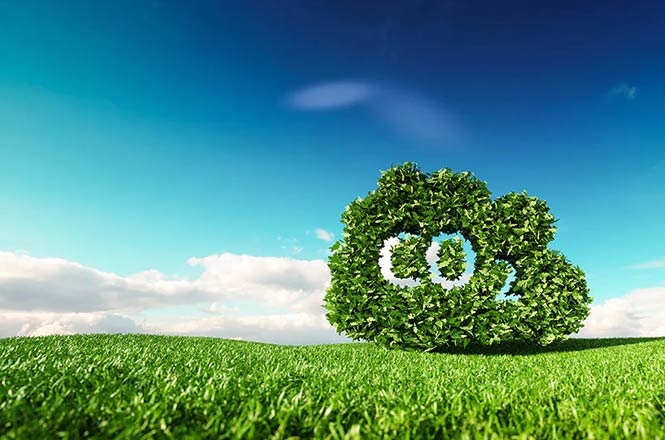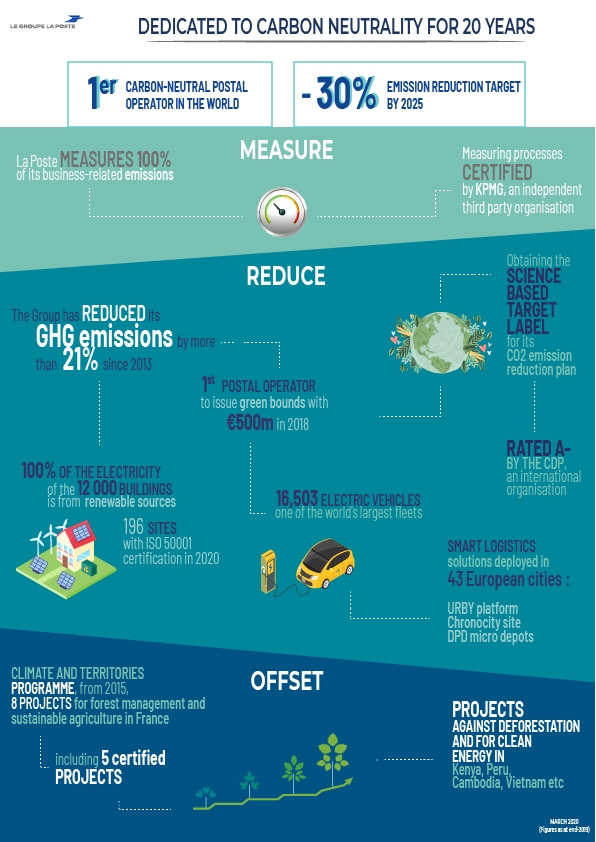Carbon neutrality
It is a balance to be achieved between man-made greenhouse gas emissions and their removal from the atmosphere by man. When the difference between the gases emitted and removed (or offset) is zero, we refer to it as carbon neutrality (or sometimes "zero net emissions").
Carbon offsetting
This is the action that aims to offset the CO2 emissions that cannot be avoided by financing projects that have a positive impact on the environment by limiting CO2 emissions.
Science Based Target initiative
Launched by the United Nations, the Science Based Target (SBTi) initiative guides companies that want to be in line with the 2°C scenario of the Paris Agreements. The latter plans to keep global temperature rise below 2°C. The STBi evaluates and validates or not the strategy as well as the means implemented by the companies, via a panel of scientists. SBTi has validated the objective that La Poste has set itself for 2025: to reduce its CO2 emissions by 30% between 2013 and 2025.
EMS (Energy Management System)
The EMS makes it possible to control energy consumption in buildings and transport in order to reduce it. La Poste obtained ISO 50 001 certification in March 2020 for 196 sites. Its ambition is to have 80% of its sites and 100% of its transport operations ISO 50 001 certified by 2030. The EMS thus contributes to mitigating La Poste's CO2 emissions.
Low carbon label
Introduced by the French government in 2019, this label enables the certification of greenhouse gas emission reduction and carbon offset projects in France in various sectors (forestry, agriculture, waste, buildings, etc.).La Poste helped to define the label and is contributing to the very first low-carbon labelled projects.


